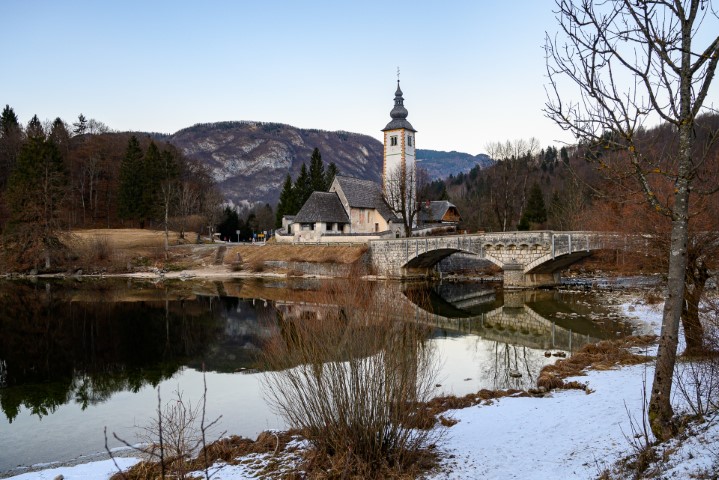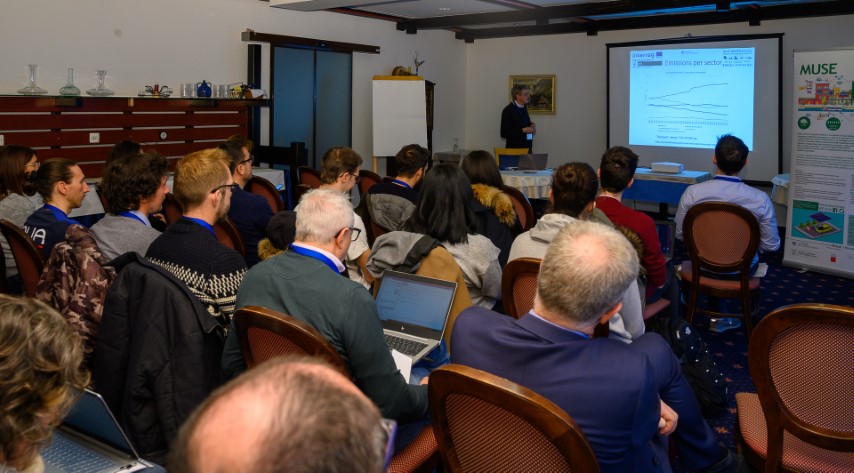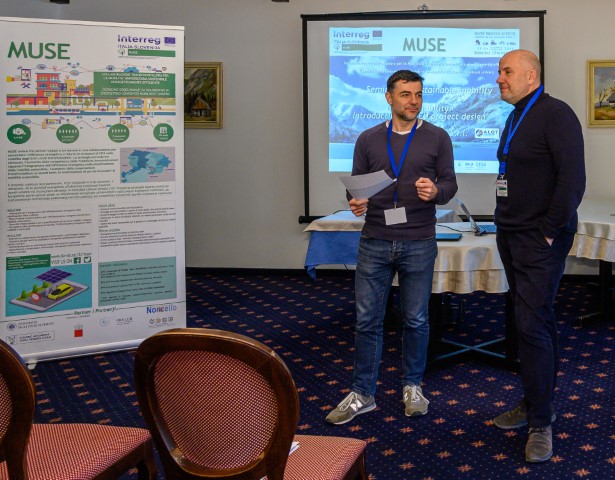
2020 will be the final year for MUSE project and the Winter School organized in January by the University of Trieste in Bohinj was certainly a good way to start it. Several academic speakers, institutional representatives and sector professionals met by the project partnership in these two years of targeted activities and studies were invited to speak during the intensive three-day seminar on sustainable mobility contacts.

MUSE project aims to promote and integrate energy efficiency and the reduction of CO2 emissions in cross-border local authorities planning strategies of urban and extra urban mobility, in collaboration with universities, research centres and operators in the Italian-Slovenian sector. The Winter School seminar was planned as an opportunity to bring the technical skills of the mobility experts to university students and interested stakeholders.
The 10-module program was designed by the Italian and Slovenian project managers of the MUSE partnership supported by ALOT s.r.l., technical support company for the Lead Partner University of Trieste. Lasting one and a half hour each, the modules covered several topics regarding sustainable urban mobility, electric mobility, energy and the power supply of infrastructure and vehicles.
Wednesday 22nd began with an introduction on mobility and climate change by Romeo Danielis (University of Trieste), a "warm" topic on the scientific agenda narrowed down by Maurizio Fermeglia, former rector of the University of Trieste, with his presentation named renewables and hydrogen: the keys to avoiding the "perfect storm", within the second module related to the strategies and problems of the mobility. Klemen Gostič (RRA LUR Ljubljana) took then the floor to speak about the state of the art and the lessons learned on sustainable urban mobility planning at local and regional level. The afternoon ended with lectures by professors Peter Lipar (University of Ljubljana) and Marco Giansoldati (University of Trieste) about the necessary measures to achieve sustainable mobility in urban areas and universities,

On the following day the participants were engaged from 9 o’clock in the morning with the interventions on mobility as a service by Jernej Vozelj (PNZ svetovanje projektiranje d.o.o.) and Jernej Zajec (Nomago d.o.o.), on the feasibility of the bike sharing system. Then Guido Piccoli from ALOT S.r.l. (technical support on MUSE project for University of Trieste) closed the morning by introducing the electric mobility topic, with a focus on EU project design. At the end of the study visit, Mariangela Scorrano from the University of Trieste completed the overview on electric mobility by presenting the Total Cost of Ownership methodology which considers the user's point of view on the economic convenience of electric vehicles. The last module of the day dealt with the issue of energy systems, with an introduction by Vanni Lughi (University of Trieste) on the energy supply chain and with lectures by Nicola Giarle and Sebastiano Cacciaguerra (Autonomous Region of Friuli Venezia Giulia) on planning energy efficiency of the Region.
The final seminar presentations on Friday morning focused on power systems. Alessandro Massi Pavan from University of Trieste introduced the topic of electrical systems deepening the energy transition towards renewables and the role of photovoltaics and the storage of electricity. The direct connection of the power systems to sustainable mobility, the central theme of the seminar lead to the presentation on charging stations and microgrids by Blaz Luin (University of Ljubljana) and Alessandro Massi Pavan who analyzed the case study of the photovoltaic charging station at the University of Trieste.

The Winter School ended with Professor Vanni Lughi's latest presentation on the integration between mobility and the energy system. The active participation of the students in the three days of the seminar allowed the speakers to effectively deepen the theme of sustainable mobility in all its forms but the real added value of this project initiative was, however, the fruitful exchange of ideas thanks to the mutual suggestions during the presentations and the moments of interaction with the speakers. The partnership of MUSE truly hopes that this Winter School could further feed the interest of the participating students, the real driving force of progress and sustainable change.
| flyerWinterSchool_agenda_FINAL.pdf ( 428 bytes, published on 21 February, 2020 - 12:38 ) |